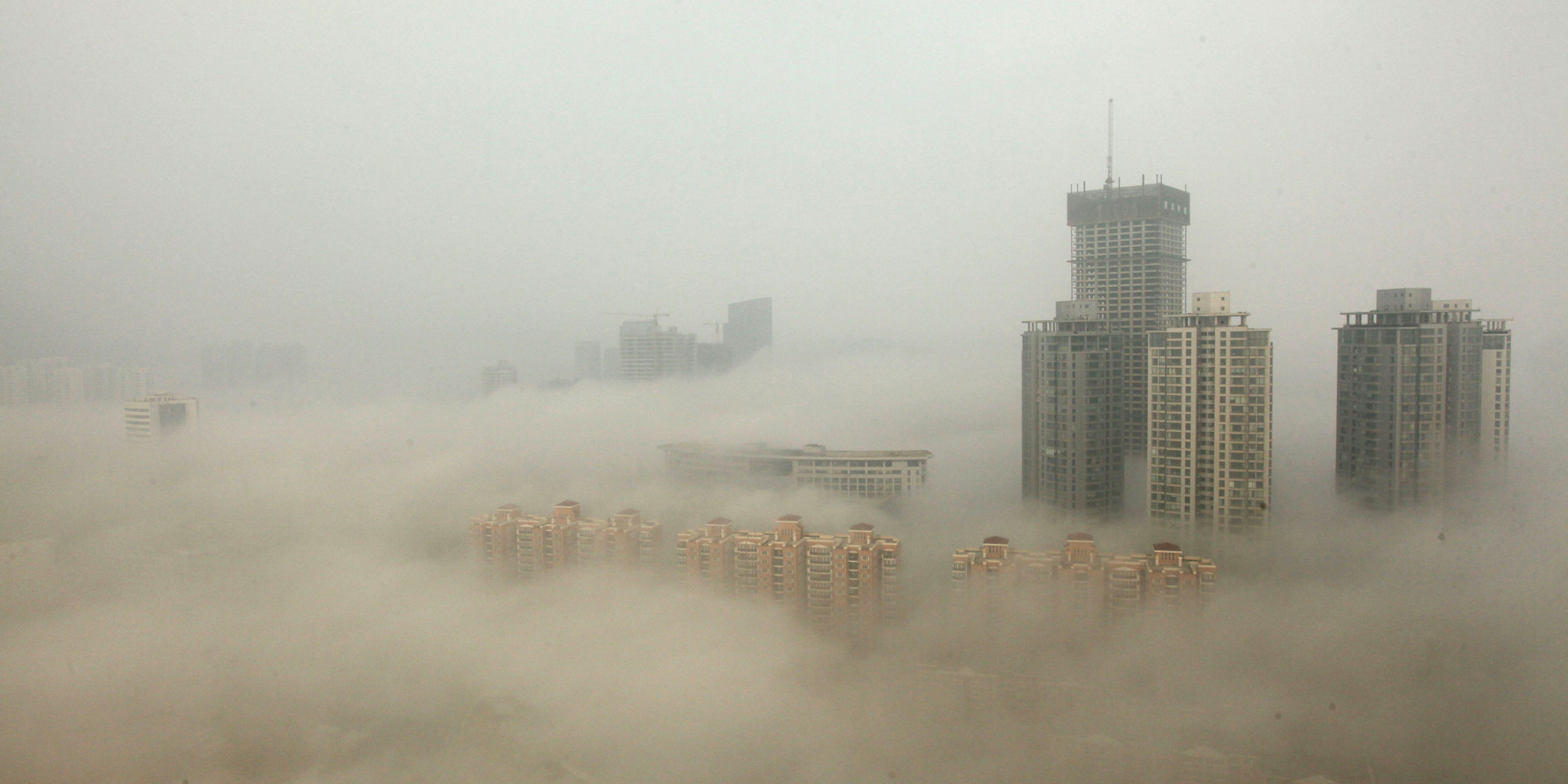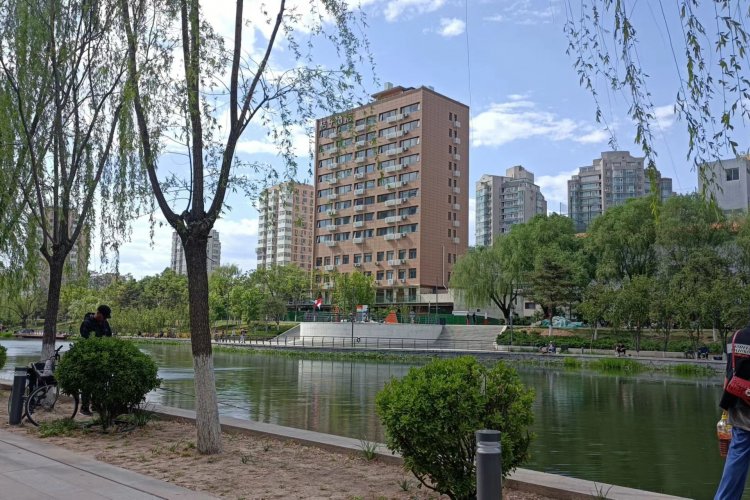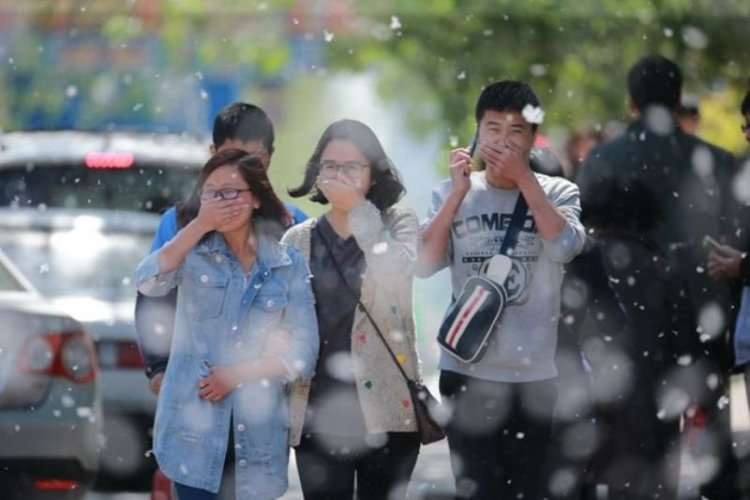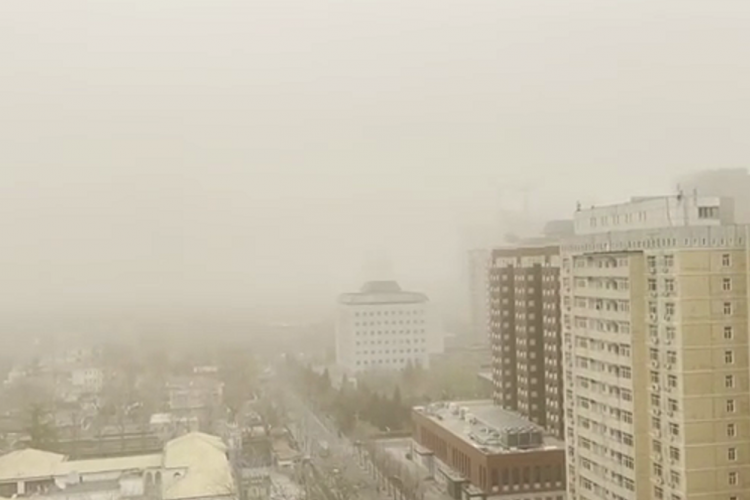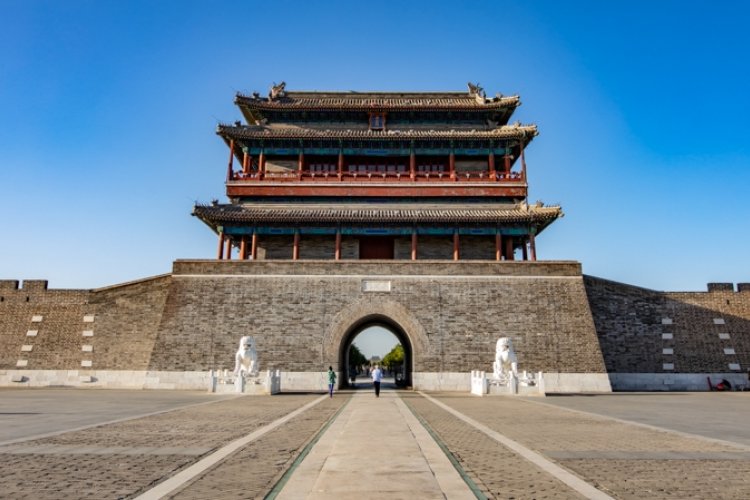New Study Says Car Exhaust Still Largest Contributor to Beijing's Air Pollution
After trying to blame chuan'r grills and factories in Hebei, the Ministry of Environmental Protection has cited car exhaust as the leading cause of Beijing's air pollution, China Daily reported Wednesday.
Two-thirds of the pollution Beijing suffers is generated from within the city, while the other third is blown in from surrounding areas such as Hebei.
The MEP's analysis indicated that of the PM 2.5 pollution generated from within the city limits, 31 percent come from motor vehicles, 22 percent from coal burning, 18 percent from industrial production, and 14 percent from dust.
Smog is also the top pollution culprit in Hangzhou, Guangzhou, and Shenzhen, the report said. Dust and industrial pollution are the leading causes of air pollution in Shanghai, Tianjin, and Ningbo, while the burning of coal is the number one cause in Hebei province's Shijiazhuang and in Nanjing.
Beijing closed three of its four coal-burning plants, and will shutter the fourth in 2016, but recently has taken no meaningful action to reduce pollution from automobile exhaust, such as permanently implementing the odd-even license plate restrictions that proved effective both during the 2008 Olympics and the November 2014 Asia-Pacific Economic Cooperation meeting.
"Severe" pollution affected Beijing and neighboring Hebei province 156 days in 2014, or 42 percent.
Photo: Huffington Post
Related stories :
Comments
New comments are displayed first.Comments
![]() PatrickLi
Submitted by Guest on Fri, 04/03/2015 - 11:10 Permalink
PatrickLi
Submitted by Guest on Fri, 04/03/2015 - 11:10 Permalink
Re: New Study Says Car Exhaust Still Largest Contributor to...
Before we fully implement the odd/evens car restrictions, maybe it's good to first raise parking prices and tackle on illegal parking. If you compare Beijing with other metropolises, nyc, d.c. or even shanghai, you'll see how cheap parking is in Beijing. It's still 6-8 rmb/hour in underground parking lots, comparing with shanghai at at least 10-12 rmb/hour and nyc at at least 20 dollars/hour.
Sometimes to me it's like we are easily oblivious to the fact that beijing is a world metropolis. People take it for granted: we pay 6 kuai for parking and we enjoy some of the best shows in the world.
The other thing is, in some other cities, you just don't drive to downtown areas because there's no parking whatsoever (maybe you got one after waiting for half hour, try your luck)---unless you pay the sky high valet parking, boston and nyc for example, but in beijing you can always find a hidden place to park and there's a huge chance that you won't be caught by parking illegally.
And many people don't drive and don't buy cars for exmaple in hong kong, where a permanent parking space can cost way more than a car. Beijing? just park by the street at night.
Well many people who drive in beijing are super rich and they may not give a fxck even after the you raise the parking price to like 20 kuai/hour, but that's another story.
![]() admin
Submitted by Guest on Fri, 04/03/2015 - 08:07 Permalink
admin
Submitted by Guest on Fri, 04/03/2015 - 08:07 Permalink
Re: New Study Says Car Exhaust Still Largest Contributor to...
Although I fully endorse a permanent odds/evens car restriction (even on weekends) I'm skeptical that it will do a lot to improve the air.
Let's take a closer look at the numbers:
1. Vehicular exhaust is 30% of the estimated 64%-74% (we'll call it the average of these two 68%) of the pollution that is generated within the city limits. Therefore 30% x 68% = 21% of overall PM 2.5 comes from cars.
2. Moving to odds and evens would take an additional 30% of vehicles off the road (right now 1/5 or 20% are restricted each weekday).
3. 30% x 21% = 6%
Therefore moving to a permanent odds/evens routine would reduce PM 2.5 by 6%, progress but not a whole lot of difference.
Disclaimer: these are back of the envelope calculations. Additionally, there may be a more pronounced reduction given that a reduction in cars would reduce congestion, which means vehicles would spend less time on roads. Let's double it and say that a permanent odds/evens restriction would result in a 12% decrease in PM 2.5.
![]() robbina984
Submitted by Guest on Thu, 04/02/2015 - 09:57 Permalink
robbina984
Submitted by Guest on Thu, 04/02/2015 - 09:57 Permalink
Re: Car Exhaust Now Officially Blamed for Beijing's Pollution
"La scoperta dell'acqua calda", inItaly we say "They discovered the hot water"!!!!!
Validate your mobile phone number to post comments.

